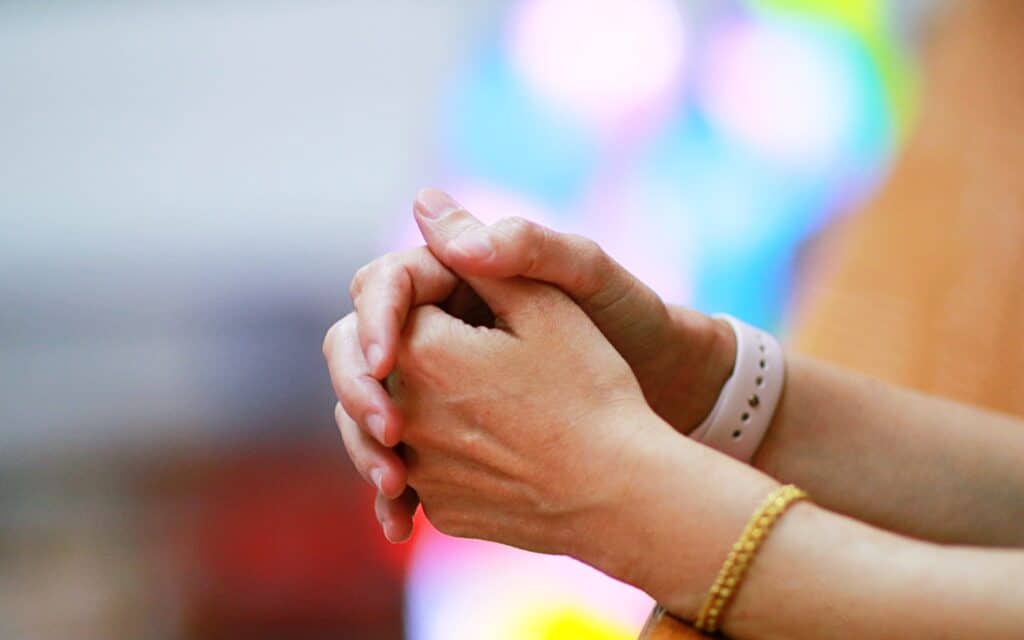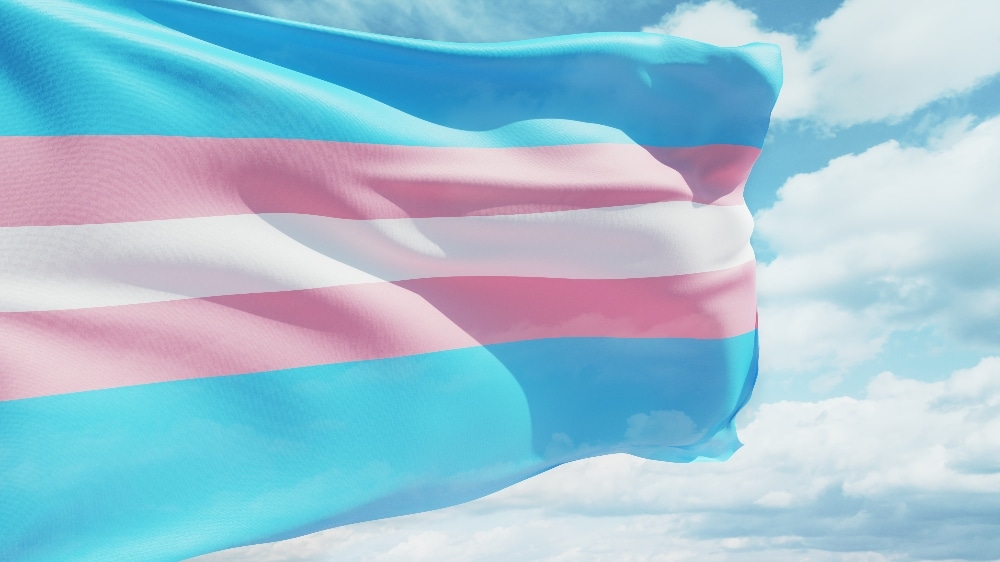For many LGBTQ+ individuals, the journey to self-acceptance and sobriety is complicated by wounds inflicted by religious communities that were supposed to provide love and support. Religious trauma and recovery intersect in particularly complex ways for sexual and gender minorities, who often face rejection, condemnation, and attempts at “conversion” from faith communities.
At No Matter What Recovery, we understand that healing from addiction for LGBTQ+ individuals often means addressing the deep psychological wounds that stem from religious rejection and spiritual abuse. Our affirming, trauma-informed approach provides a safe space where you can explore these deeply personal struggles without fear of judgment while building a foundation for lasting recovery.
What is Religious Trauma?
Religious trauma refers to the psychological and emotional distress resulting from harmful religious or spiritual experiences. According to groundbreaking research published in the Socio-Historical Examination of Religion and Ministry Journal, approximately one-third (27-33%) of U.S. adults have experienced religious trauma at some point in their lives, making it a surprisingly common yet often overlooked source of psychological distress.
Religious trauma syndrome (RTS), a term coined by psychologist Marlene Winell in 2011, encompasses a range of symptoms that can develop from:
- Authoritarian religious environments that use fear, guilt, and shame as control mechanisms
- Spiritual abuse by religious leaders or community members
- Rigid belief systems that suppress individual autonomy and critical thinking
- The process of leaving a controlling religious community
Signs and Symptoms of Religious Trauma
Religious trauma can manifest in various ways that may complicate addiction recovery:
Emotional symptoms:
- Persistent shame, guilt, and fear
- Anxiety about spiritual matters or eternal consequences
- Depression and feelings of worthlessness
- Difficulty trusting others or forming healthy relationships
Cognitive symptoms:
- Confusion about personal identity and values
- Difficulty making independent decisions
- Challenges with critical thinking
- Intrusive thoughts related to religious teachings
Behavioral symptoms:
- Avoidance of anything religious or spiritual
- Social isolation from former faith communities
- Difficulty establishing boundaries
- Compulsive behaviors or addictive patterns
How Religious Trauma Drives Addiction in the LGBTQ+ Community
The pathway from religious trauma to addiction in the LGBTQ+ community follows predictable but devastating patterns. Understanding these connections is crucial for effective treatment and recovery.
Self-Medication for Minority Stress
LGBTQ+ individuals already face elevated levels of minority stress – the chronic stress experienced by stigmatized minority groups. When religious trauma is added to this burden, the psychological pain can become overwhelming, leading many to turn to substances for relief.
- Numbing emotional pain: Alcohol and drugs provide temporary escape from the intense shame, guilt, and self-hatred instilled by religious rejection. For many LGBTQ+ individuals, substances become the only way to silence the internalized voices telling them they are fundamentally wrong or evil.
- Managing anxiety and hypervigilance: Years of hiding one’s identity and fearing discovery can create chronic anxiety and hypervigilance. Substances may initially help manage these overwhelming feelings, providing a false sense of calm and safety.
- Escaping intrusive thoughts: Religious trauma often leaves LGBTQ+ individuals with intrusive thoughts about hell, damnation, or divine punishment. Drugs and alcohol can temporarily quiet these distressing mental intrusions.
The Party and Play Connection
Within certain segments of the LGBTQ+ community, particularly among gay and bisexual men, the intersection of religious trauma and addiction takes on specific patterns through what’s known as “Party and Play” (PnP) culture – the combination of recreational drug use with sexual activity.
- Overcoming sexual shame: Years of being taught that same-sex attraction is sinful can create deep sexual shame. Some individuals use substances to overcome these inhibitions and engage in sexual behavior that feels authentic to their identity.
- Seeking connection and community: After rejection from religious communities, some LGBTQ+ individuals find acceptance in party scenes where drug use is normalized, even if these environments aren’t ultimately healthy.
- Risk-taking behaviors: The combination of substances and sex can lead to increased risk-taking, including unprotected sex and dangerous drug combinations, reflecting the deep self-worth issues that stem from religious trauma.
Identity Fragmentation and Coping
Religious trauma creates what psychologists call “identity fragmentation” – a splitting of the authentic self from the acceptable self that religious communities demand.
- Living a double life: Many LGBTQ+ individuals from religious backgrounds learn to compartmentalize their lives, presenting a “straight” or cisgender facade while privately struggling with their authentic identity. This psychological splitting is exhausting and often leads to substance use as a coping mechanism.
- Delayed identity development: When authentic identity development is suppressed during adolescence and young adulthood, individuals may use substances to cope with the confusion and pain of not knowing who they really are.
- Grief and loss: Coming out later in life often means grieving the loss of years spent living inauthentically, as well as the loss of religious community and sometimes family. This grief process can trigger or worsen substance abuse.
Religious Trauma in the LGBTQ+ Community: A Hidden Epidemic
The intersection of religious trauma and LGBTQ+ identity creates a particularly devastating form of psychological harm that significantly increases the risk of addiction. Research consistently shows that LGBTQ+ individuals experience religious trauma at disproportionately higher rates than the general population, with many facing years of attempted “conversion,” family rejection, and spiritual abuse.
The Unique Nature of LGBTQ+ Religious Trauma
For LGBTQ+ individuals raised in religious environments, the trauma often begins in childhood and adolescence – critical developmental periods when identity formation occurs. Unlike other forms of religious trauma, LGBTQ+ religious trauma specifically targets a person’s core identity, creating what researchers call “identity-based spiritual violence.”
- Core identity rejection: Religious communities often teach that same-sex attraction or gender non-conformity is fundamentally sinful or disordered, forcing LGBTQ+ individuals to view their authentic selves as inherently broken or evil.
- Conversion therapy trauma: Many LGBTQ+ individuals have been subjected to harmful “conversion” practices that attempt to change sexual orientation or gender identity through prayer, counseling, or more extreme measures. These practices have been condemned by major medical and mental health organizations and are associated with increased rates of depression, anxiety, and suicidal ideation.
- Family rejection in the name of faith: Parents and relatives often justify rejecting their LGBTQ+ family members by citing religious beliefs, creating a double trauma of both familial abandonment and spiritual rejection.
- Internalized shame and self-hatred: Years of being told that their identity is sinful can lead LGBTQ+ individuals to develop deep internalized homophobia, transphobia, and spiritual shame that persists even after leaving religious communities.
The Statistics Tell a Sobering Story
Research reveals the alarming scope of religious trauma within the LGBTQ+ community:
- LGBTQ+ youth are significantly overrepresented among those experiencing religious trauma, with many reporting that rejection from faith communities was their first experience of discrimination
- Family rejection based on religious beliefs affects approximately 68% of homeless LGBTQ+ youth, according to studies by the Williams Institute
- Conversion therapy survivors report rates of attempted suicide at nearly double the rate of LGBTQ+ individuals who did not experience these practices
- LGBTQ+ individuals from religious backgrounds are more likely to delay coming out and seeking support due to internalized shame and fear of further rejection
Complexities of Recovery for LGBTQ+ Individuals with Religious Trauma
Recovery from addiction is challenging for anyone, but LGBTQ+ individuals with religious trauma face additional layers of complexity that require specialized understanding and treatment approaches.
The Challenge of Dual Recovery
LGBTQ+ individuals with religious trauma must navigate what experts call “dual recovery” – healing from both addiction and the psychological wounds inflicted by religious communities. This process is complicated by several factors:
- Intertwined traumas: Religious trauma and identity suppression are often so deeply intertwined that addressing one without the other leads to incomplete healing. The shame about sexual orientation or gender identity cannot be separated from the shame about addiction.
- Trust and vulnerability issues: Years of rejection and spiritual abuse can make it extremely difficult to trust treatment providers or be vulnerable in therapy, which are essential components of successful addiction recovery.
- Fear of judgment in recovery settings: Even secular treatment programs may feel unsafe if other participants or staff express religious beliefs or make assumptions about LGBTQ+ lifestyles.
Identity Integration Challenges
- Authentic self vs. survival self: Many LGBTQ+ individuals with religious trauma have learned to present a “false self” to survive in hostile religious environments. In recovery, learning to integrate their authentic identity while staying sober requires careful therapeutic support.
- Sexual and romantic relationship difficulties: Religious trauma often creates confusion, shame, and dysfunction around sexuality and relationships. Learning to have healthy intimate relationships while maintaining sobriety presents unique challenges.
- Career and life choices: Some LGBTQ+ individuals have made career or life choices based on their religious background that don’t align with their authentic selves. Recovery may involve major life changes that can be overwhelming without proper support.
Family and Community Reconstruction
- Grieving multiple losses: Recovery often involves grieving not just the loss of substances, but also the loss of religious community, family relationships, and years of authentic living. This complex grief process can trigger relapse if not properly addressed.
- Building chosen family: After losing biological family and religious community, LGBTQ+ individuals must learn to build “chosen family” – supportive relationships with friends and community members who accept their authentic identity.
- Navigating family relationships: Some LGBTQ+ individuals maintain relationships with religious family members while others have gone no-contact. Recovery programs must be sensitive to these complex family dynamics.
Spiritual Complexity
- Religious versus spiritual: Some LGBTQ+ individuals want to maintain spiritual practices while rejecting organized religion. Others want nothing to do with anything spiritual. Treatment must respect these individual differences.
- Reclaiming positive spiritual experiences: Some individuals want to reclaim the positive aspects of their spiritual upbringing while healing from the trauma. This requires careful therapeutic work to separate healthy spirituality from harmful religious experiences.
- Secular meaning-making: For those who choose to remain secular, recovery involves finding meaning, purpose, and community outside of religious frameworks, which can be challenging for individuals who were raised with religion as their primary meaning-making system.
Healing from Religious Trauma in Recovery
Recovery from both addiction and religious trauma is possible with the right support and treatment approach. The healing process typically involves several key components:
Trauma Processing
Working with a qualified therapist to process traumatic religious experiences is essential. This may involve:
- EMDR therapy to address traumatic memories
- Cognitive-behavioral therapy to challenge harmful thought patterns
- Somatic approaches to address trauma stored in the body
- Group therapy with others who have similar experiences
Spiritual Exploration (Optional)
Some individuals choose to explore spirituality as part of their healing journey, while others prefer secular approaches. Both paths are valid, and the choice should always remain with the individual. For those who choose spiritual exploration, this might include:
- Developing a personal relationship with spirituality outside of organized religion
- Exploring different faith traditions that align with their values
- Practicing meditation or mindfulness without religious context
- Connecting with progressive religious communities that are affirming and inclusive
Building New Community
Creating healthy social connections is crucial for both addiction recovery and healing from religious trauma:
- Support groups for religious trauma survivors
- LGBTQ+ affirming communities for sexual and gender minorities
- Recovery communities that respect diverse spiritual beliefs
- Professional networks and hobby groups that provide social connection
LGBTQ+-Affirming Treatment Approaches at No Matter What Recovery
Our comprehensive approach to treating LGBTQ+ individuals with co-occurring addiction and religious trauma addresses the unique complexities this population faces. We understand that effective treatment must address both the addiction and the underlying religious trauma while affirming clients’ authentic identities.
Specialized Individual Therapy
Our licensed therapists are trained in both LGBTQ+-affirming care and religious trauma treatment. We use evidence-based approaches specifically adapted for this population:
- Identity-affirming therapy: We help clients integrate their authentic sexual orientation and gender identity into their recovery journey, addressing internalized homophobia, transphobia, and religious shame.
- Trauma-focused cognitive behavioral therapy (TF-CBT): Specifically adapted to address religious trauma, helping clients identify and challenge harmful beliefs instilled by religious communities.
- Eye Movement Desensitization and Reprocessing (EMDR): Particularly effective for processing traumatic memories related to conversion therapy, family rejection, or spiritual abuse.
- Internal Family Systems (IFS) therapy: Helps clients integrate different aspects of their identity that may have been split off due to religious trauma, allowing for authentic self-expression in recovery.
LGBTQ+-Specific Group Therapy
We offer specialized group therapy sessions designed specifically for LGBTQ+ individuals navigating both addiction and religious trauma:
- Identity integration groups: Safe spaces to explore the intersection of sexual orientation, gender identity, and recovery without fear of judgment.
- Religious trauma processing groups: Groups specifically for individuals processing the wounds inflicted by religious communities, led by therapists who understand these unique experiences.
- Chosen family building: Groups focused on developing healthy relationships and building supportive community networks outside of religious frameworks.
Addressing Unique LGBTQ+ Addiction Patterns
- Party and Play (PnP) recovery: Specialized treatment for individuals whose addiction involves the intersection of substance use and sexual behavior, addressing both the addiction and underlying sexual shame.
- Chemsex addiction treatment: Comprehensive approach to treating methamphetamine addiction within the context of sexual behavior, common in certain segments of the gay community.
- Trauma-informed sexual health: Addressing the ways religious trauma impacts sexual health and relationships, helping clients develop healthy intimate relationships in recovery.
Creating Your Authentic Path to Recovery
For LGBTQ+ individuals, recovery isn’t just about getting sober – it’s about reclaiming your authentic self and building a life that honors who you truly are. Research shows that LGBTQ+ individuals face unique challenges in recovery, but with affirming, specialized treatment, healing is not only possible but transformative.
It’s important to understand that:
- Your identity is not a disorder – being LGBTQ+ is a natural variation of human diversity, and any religious teaching that says otherwise is harmful and incorrect
- Religious trauma is real – the wounds inflicted by religious rejection and spiritual abuse are valid and significant
- Recovery includes identity affirmation – true recovery means living authentically as your complete self
- You deserve affirming care – you have the right to treatment providers who celebrate your identity rather than merely tolerate it
- Community is essential – building chosen family and supportive networks is crucial for long-term recovery
- You’re part of a resilient community – LGBTQ+ individuals have incredible strength and resilience, and you’re not alone in this journey
Moving Forward: Hope and Healing
The journey of recovery from both addiction and religious trauma is deeply personal and often challenging. However, with compassionate, trauma-informed care, individuals can develop healthy coping mechanisms, rebuild their sense of self, and create meaningful lives free from the burdens of both addiction and religious trauma.
At No Matter What Recovery, we believe that everyone deserves the opportunity to heal and thrive, regardless of their past religious experiences. Our team is committed to providing culturally sensitive, affirming care that respects each individual’s unique journey.
Recovery is not one-size-fits-all. Whether your path includes rediscovering healthy spirituality, embracing secular recovery approaches, or finding something entirely unique to your experience, we’re here to support you every step of the way.
Take the First Step Toward Authentic Recovery
If you’re an LGBTQ+ individual struggling with addiction and religious trauma, know that specialized, affirming help is available. Our experienced team at No Matter What Recovery understands the unique intersection of religious trauma, LGBTQ+ identity, and addiction. We’re committed to providing a safe, celebratory space where you can explore your experiences, heal from religious wounds, and build a recovery that honors your authentic self.
You deserve recovery that celebrates who you are. Don’t let religious trauma or fear of judgment keep you from the healing and happiness you deserve. Contact No Matter What Recovery today to learn more about our LGBTQ+-affirming addiction treatment programs.

Mell McCracken, CADC II, ASAT, RACS
Mell McCracken is the Executive Director of No Matter What Recovery, serving as the leader of the clinical treatment program and overseeing our sexualized drug use curriculum.
Mell is nationally and internationally recognized as an LGBT+ educator, co-author, and treatment provider. They also serve as faculty member at the International Institute of Trauma and Addiction Specialists. They are committed to uplifting voices and breaking stigmas, one conversation at a time, and have spent their career fighting for inclusivity and empowerment through chemsex education and LGBT+ activism.







